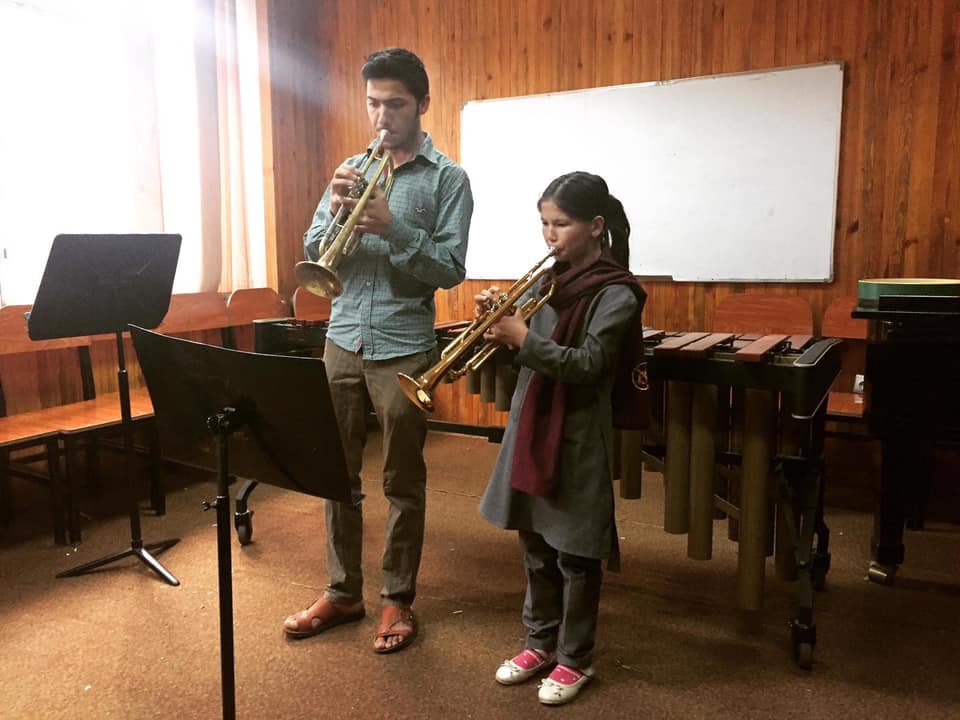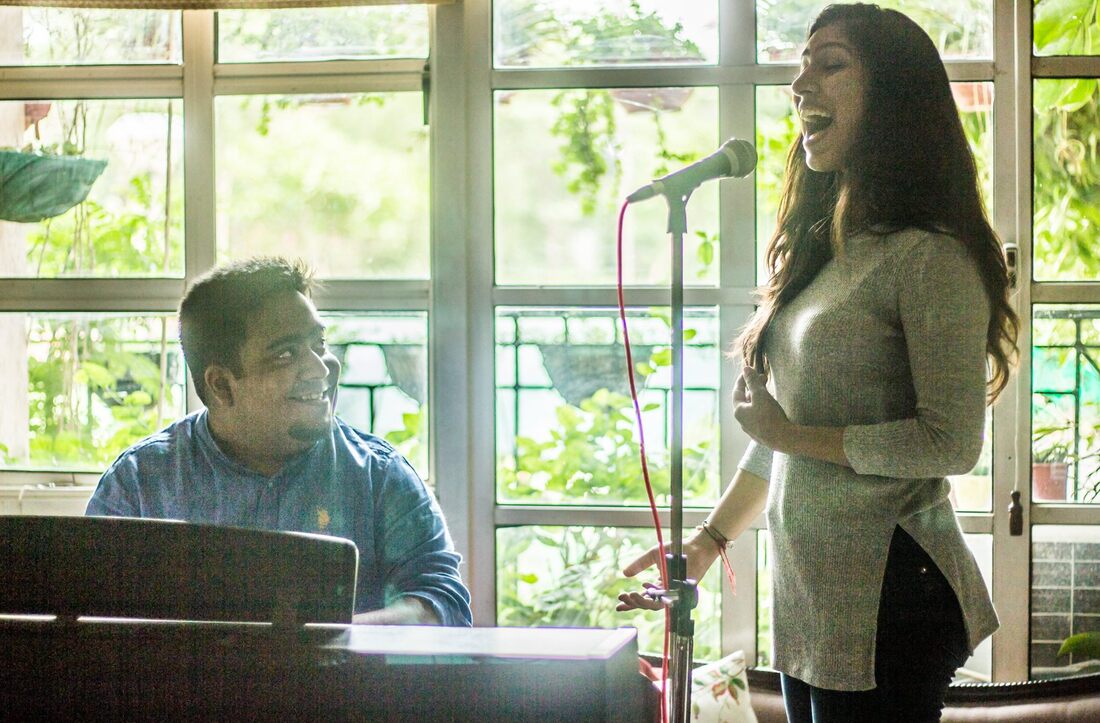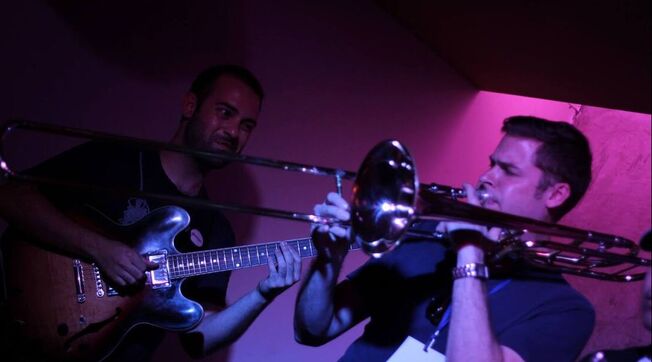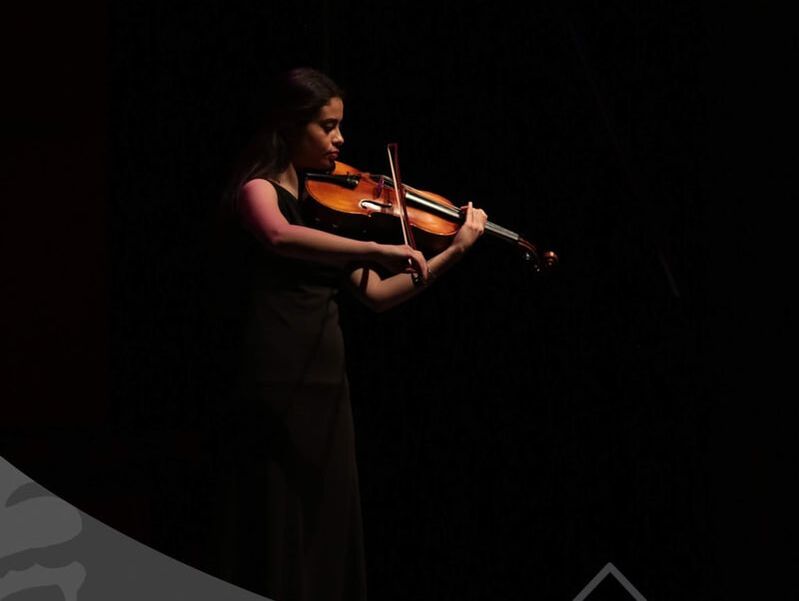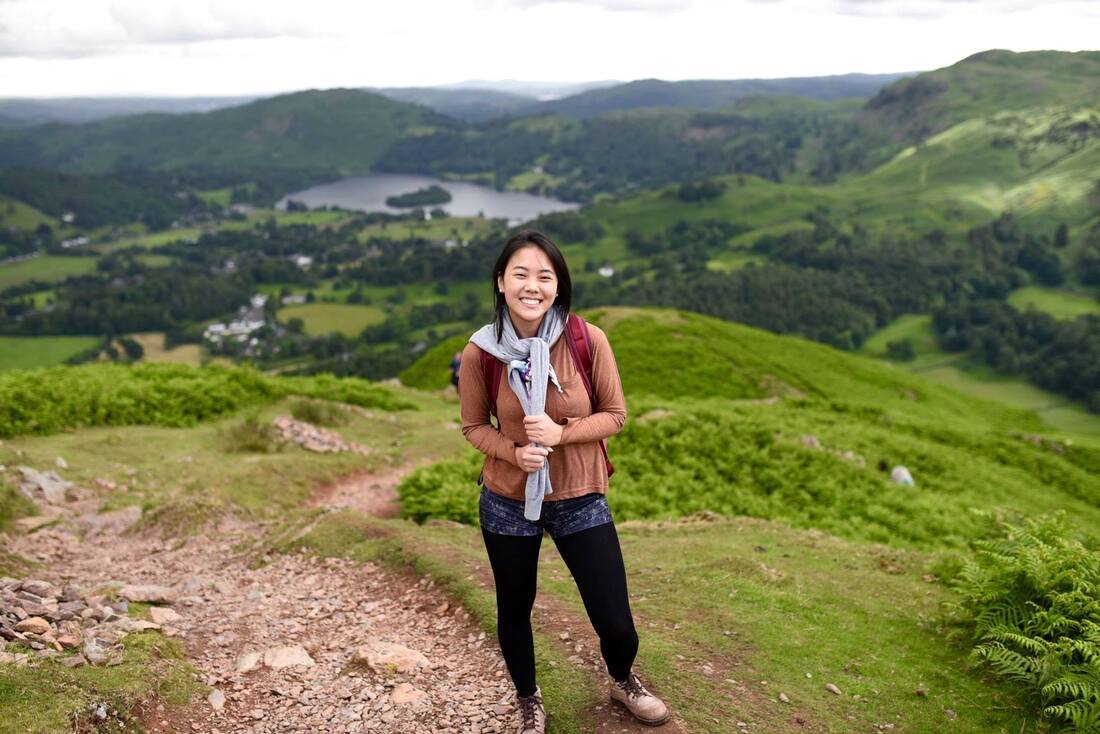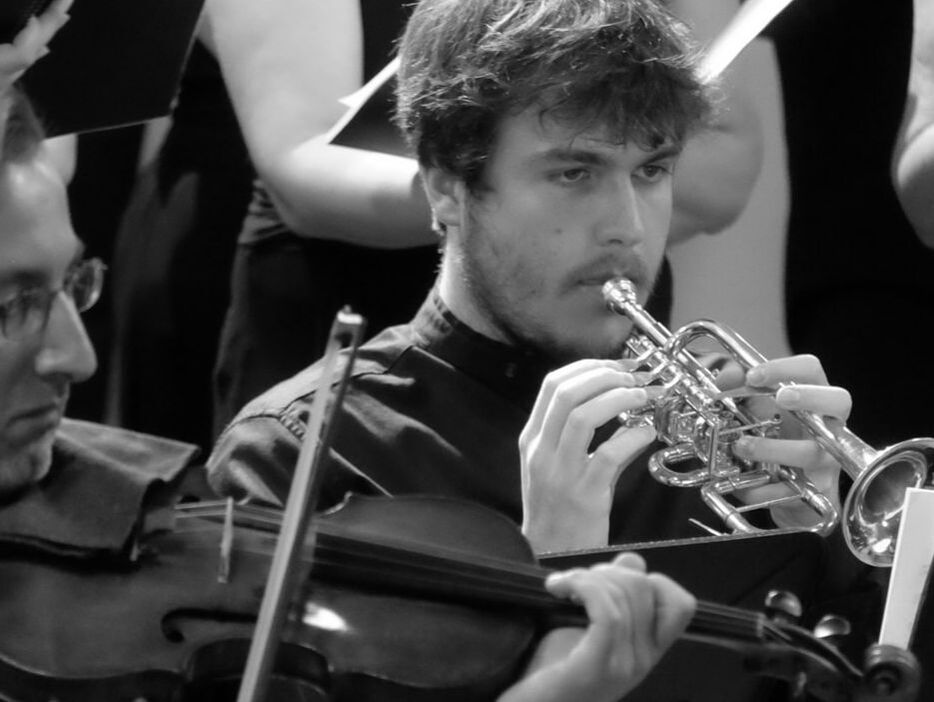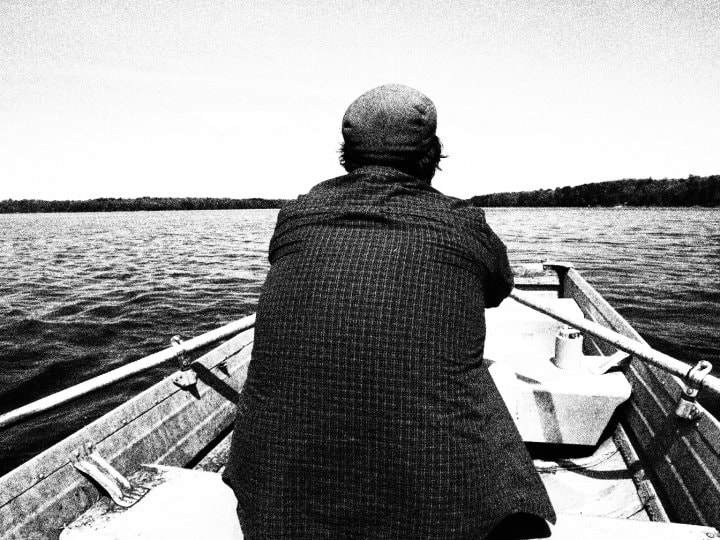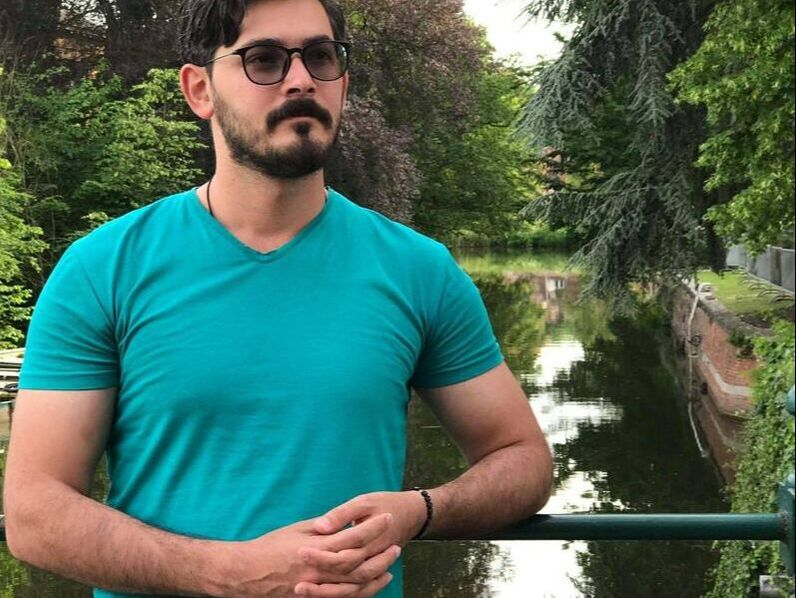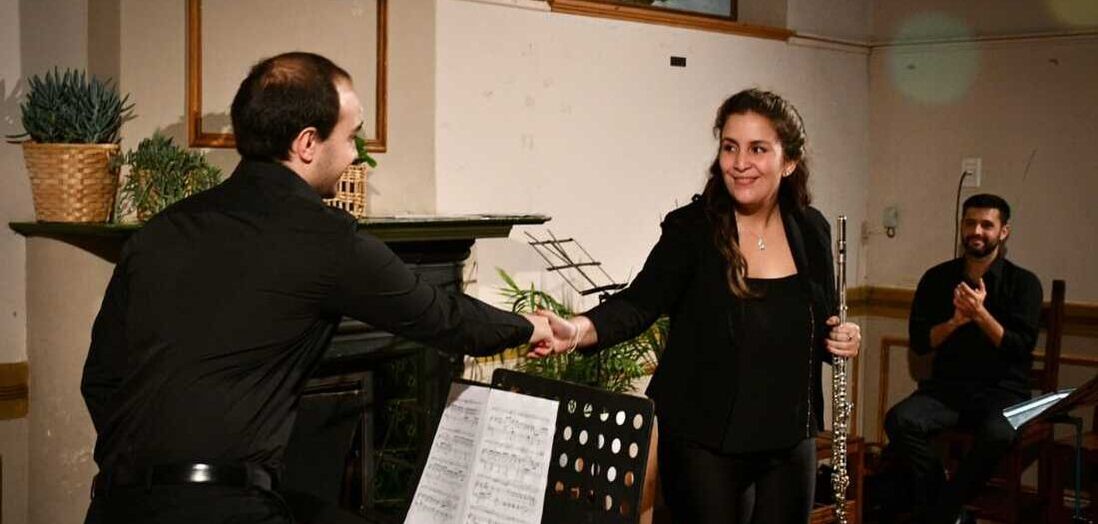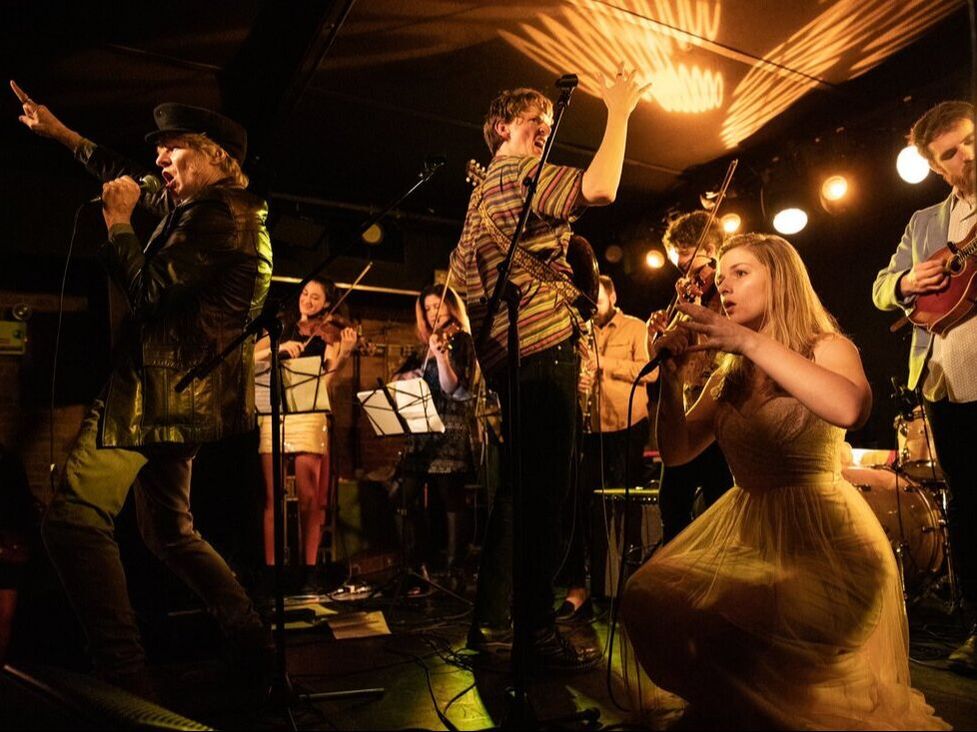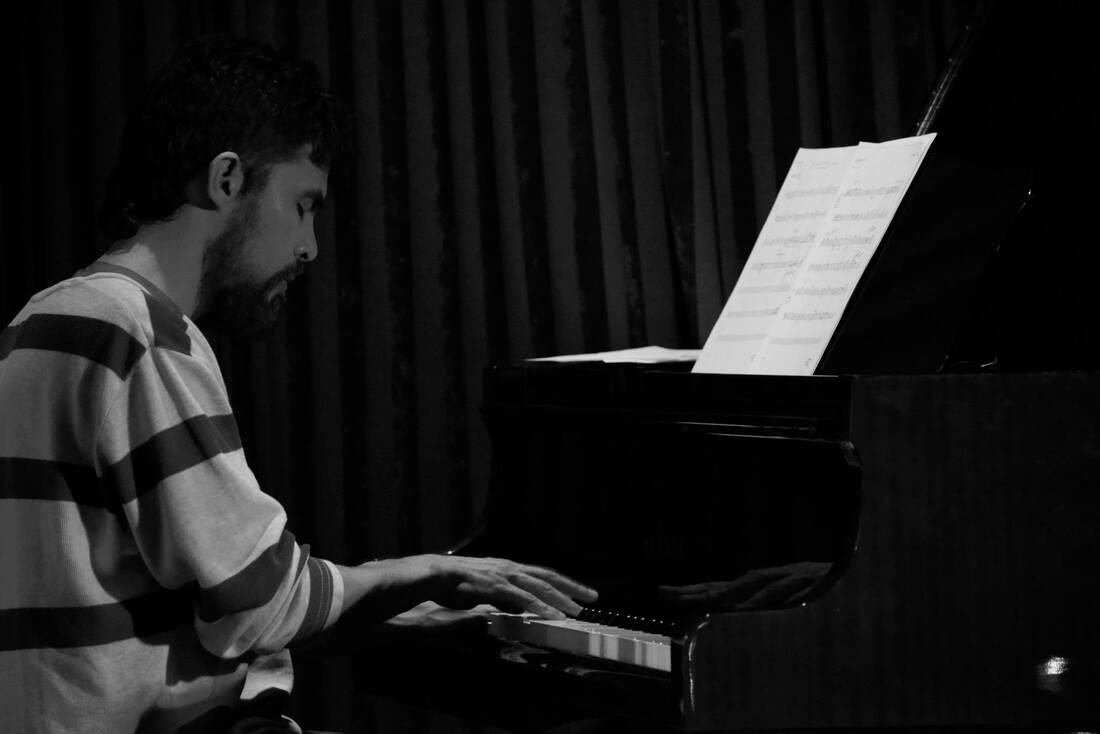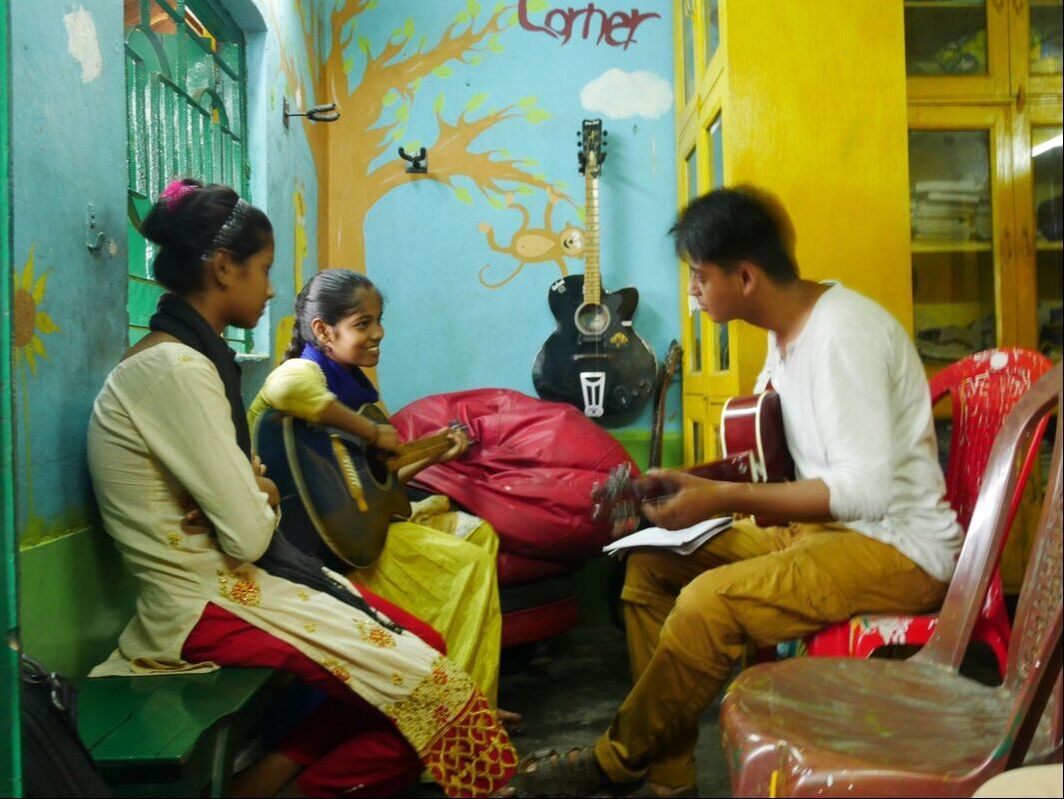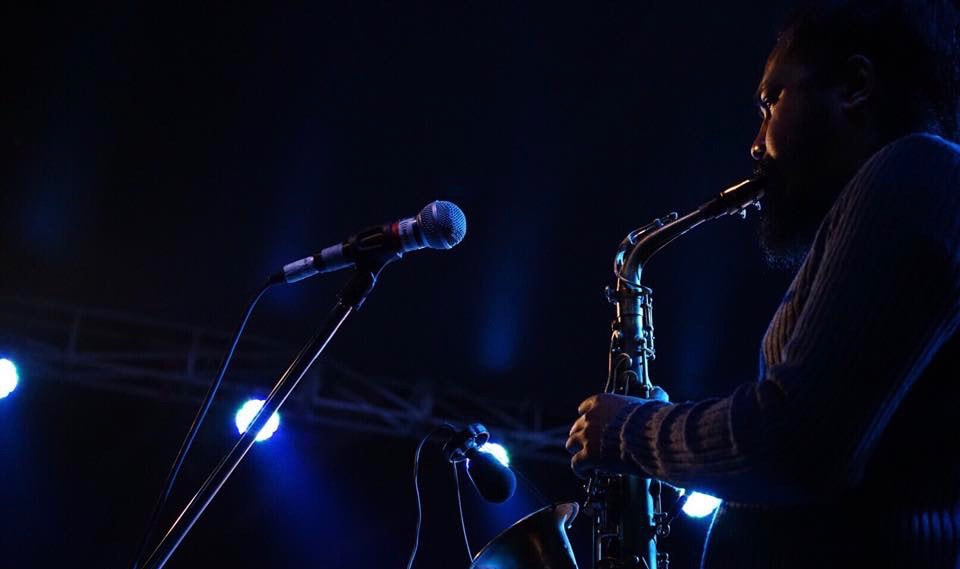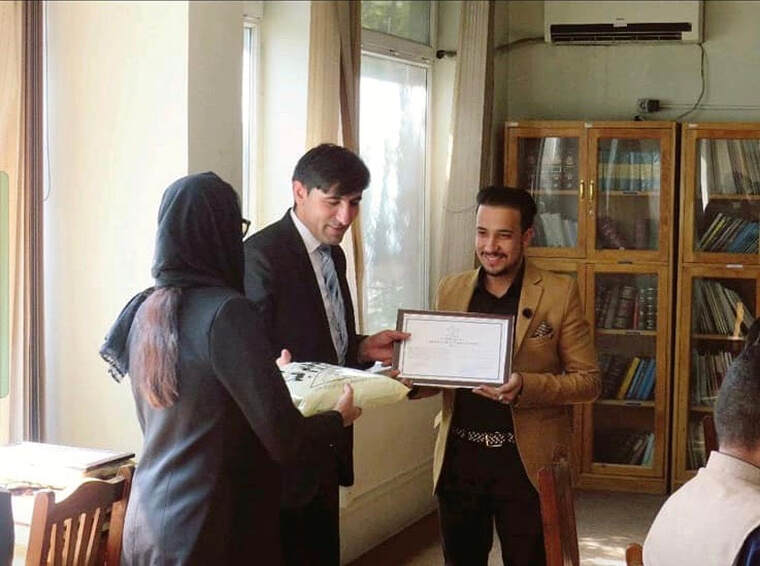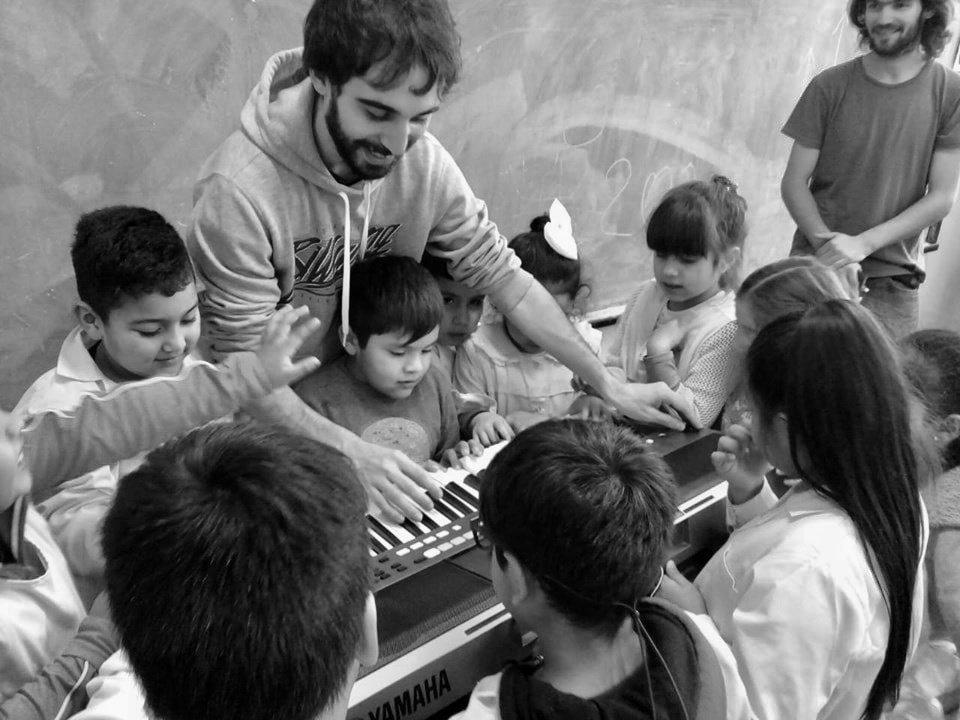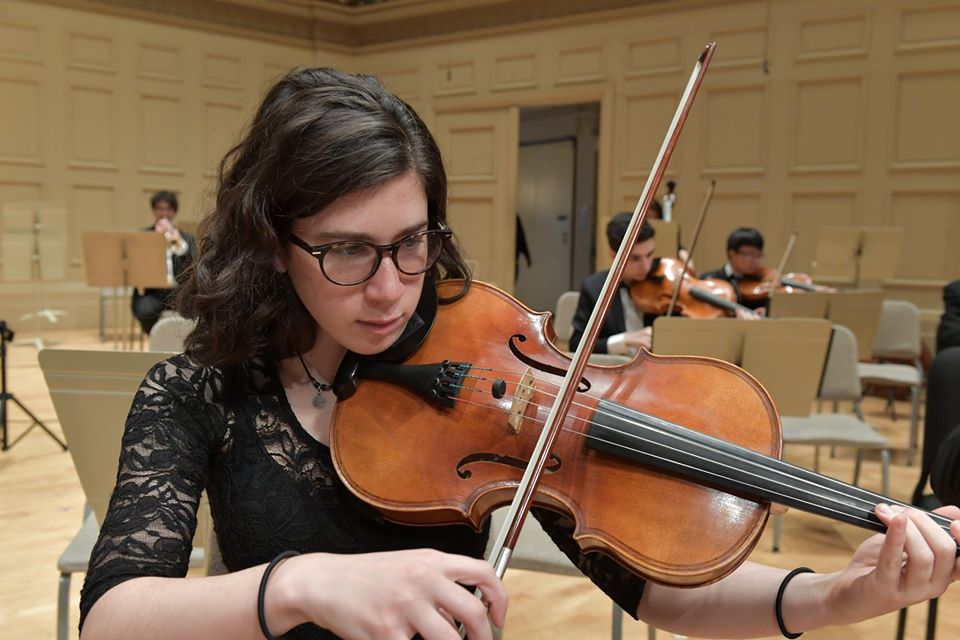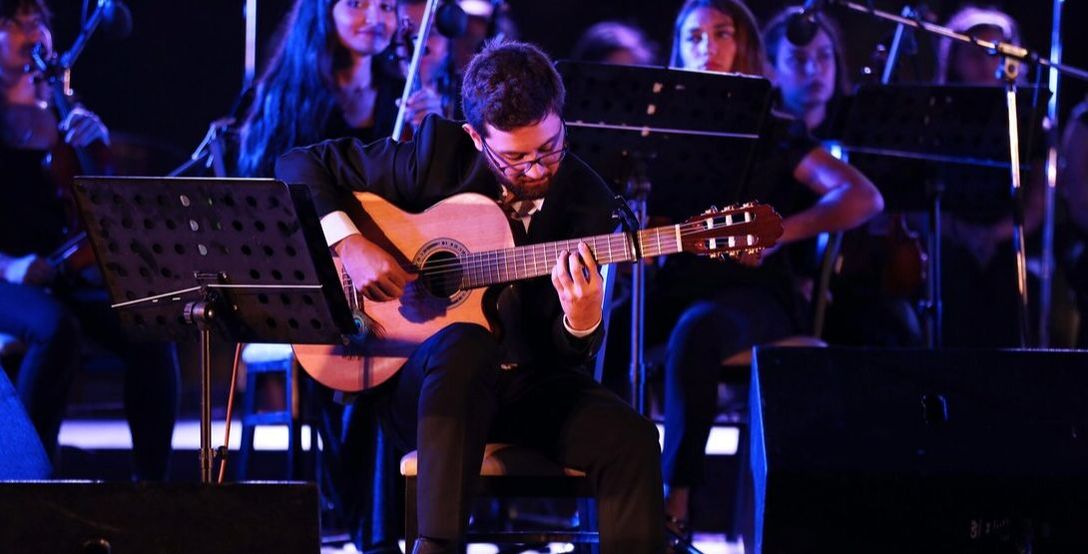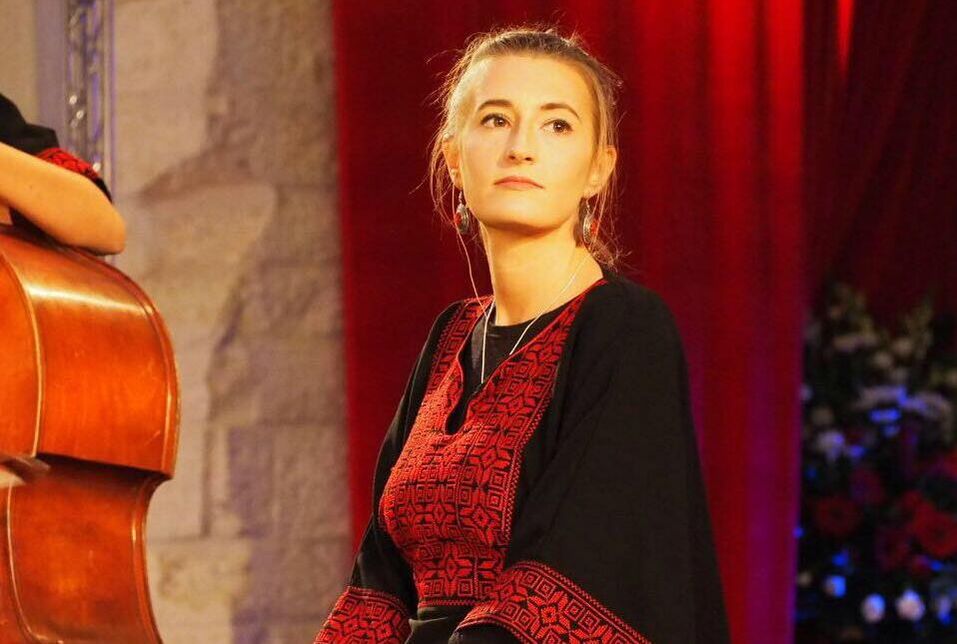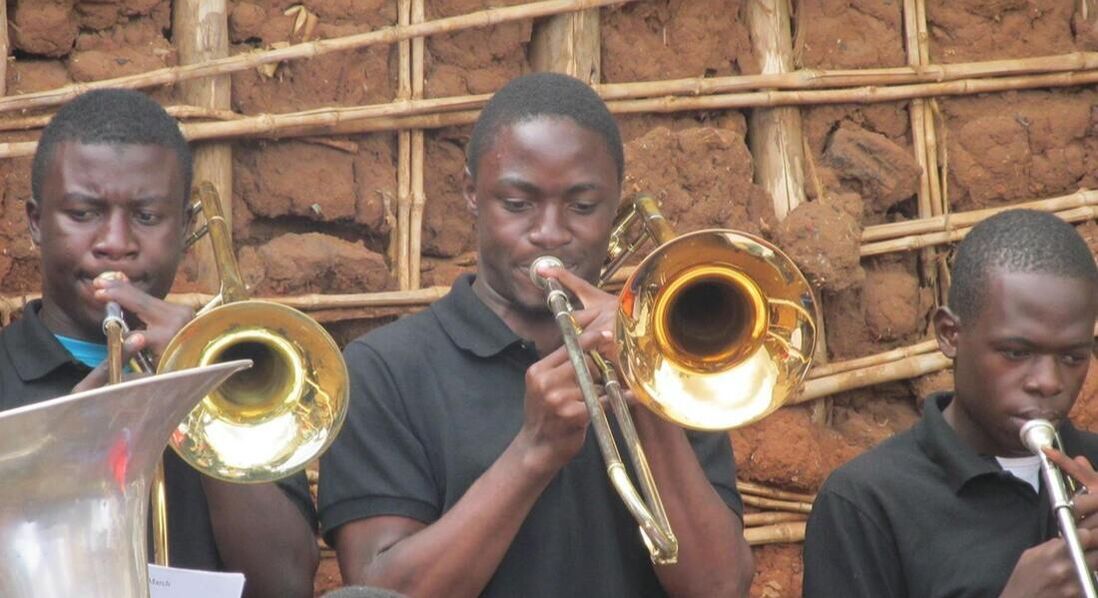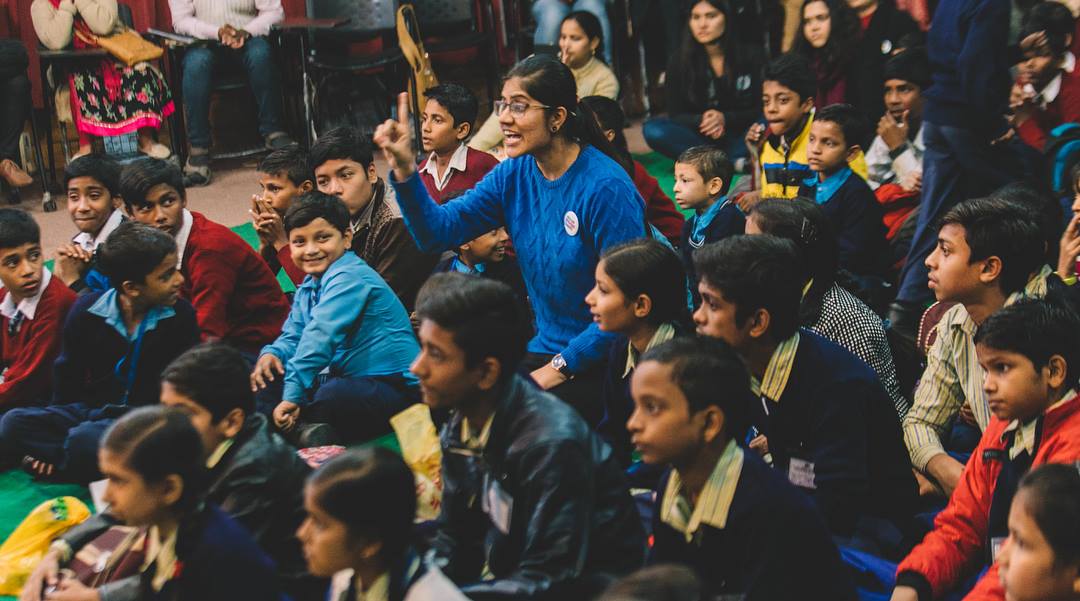|
I was born in Farah, Afghanistan in 1999. Farah is a rural province of western Afghanistan.
I attended primary school for two years then moved to Kabul with my aunt, where she took me to an orphanage called the “Afghan Child Education and Care organization” (AFCECO) so that I could receive sponsorship to continue my studies in Kabul. As a child born in war and growing up in an orphanage, I perhaps better understand the painful life of Afghan kids, who are undoubtedly the prime victims of the ongoing conflicts in Afghanistan. My upcoming music album “Kid of War” will depict a glimpse of this tragedy and each song in it narrates a true story of the thousands that most Afghan children have experienced in this era. Out of the growing pool of young leaders raised in the AFCECO orphanages, I am one of the examples of this investment that now comes to fruition. I was born into one of the most impoverished families affected by wars and population migrations. I would describe my childhood as being almost completely devoid of happiness when my destitute parents had literally abandoned me at the age of five. I was a wandering boy searching through an alien world for a place to live. In a stroke of luck, I found a new home, the Sitara Orphanage in Kabul, a happy place where my life got a new turn. The new home housed two hundred kids from all parts of Afghanistan where they learned tolerance, respect for diversity and for the rights of others, and strong values of integrity, honesty and compassion. Each brought his individual rootedness to the orphanage. The orphanage reshaped my life and helped me to become a young artist. Since 2011, I have been studying music at the Afghanistan National Institute of Music where I established a professional music career for myself. Besides being a trumpet player and a resident faculty teacher at ANIM, I write and compose songs for children as well. I now work on my first album titled “Kid of War”, which I described it in this Facebook post: "I opened a music class in the orphanage and established an amazing choir made up of the little girls who have recently joined the orphanage. I expressed my feeling during a stage performance with the kids choir." Now when I see it, it becomes a certainty — my belief that all these kids are able to change the worst situation for this country. They struggle against all ethnic and racial issues they faced for more than a hundred years and in return they give the lesson of humanity, right struggle, and battle for others’ right: a free Afghanistan in which all could live as brother and sisters. Tomorrow, we, the children of the orphanage, will not be judged by how many awards we have received, how much money we have made, how big the stage was that we performed on, how prestigious was the university we studied in, or how many followers we have on Instagram or Facebook. We will be judged by what we give back to what the orphanage gave us.
1 Comment
The magic and sustained interest in music and creativity really began when I was left on my own to explore. No classes, no structure. I loved loved loved dancing. I would wear my mother’s makeup, wrap my grandmother’s single ‘chunni’ as a Sari around my tiny body and dance to my own singing in front of the long mirror in my parents’ room when no one was watching. I would imagine I’m putting on a show for thousands of people on a big stage. At the time I didn’t know that Bollywood actresses were lip syncing songs - and I’d imagine myself as one; singing and dancing and millions of people watching me on the big screen. I even prepared speeches for that imminent national award I was going to receive for best “singer-dancer” of the year.
Pleasantly intrigued by my seemingly spontaneous love for singing, my parents invested in an iPod and music system for me. I was 12. It was the best thing they could have ever given me. I was hooked. I sang all the time! It was amazing how steep the musical learning curve was for me within the next two years. Singing songs, and really having a hunger to be as emotive as the singers I was imitating was the most amazing learning. I sang Beyoncé, Alicia Keys, Leona Lewis, Jordyn Sparks, Regina Spector among many many others. I learnt how they use vibrato, how they emphasize words, about tone and texture, about belting, use of words and lyric. There was no computer at home to print lyrics, so I would sit alone in a room with my lyric notebook and in solitude, focus on the lyrics being sung and pen them down so that I could sing a long. This got me into really deep diving and unraveling the world of lyric writing and telling complete stories through a 4 minute song. I inhaled books in any case, and lyrics in songs were just icing on the cake. After a few years I joined a school for music where I got into performance. Unlike most other people who get frightened performing for the first time, I had absolutely no fear. The music, even at 14, was so much bigger than me. I was so confident of my craft and being able to do justice to what I took on, that all I was feeling was excitement about presenting the music and having that shared thrill with my bandmates. At this music school that gave me my first stage experience, I also met the members of my first band. At 15, I joined ‘The Incredible Mindfunk’ which changed my life. We wrote original music together- my first ever experience in songwriting and collaborating with other musicians to create something original. It was thrilling and so fulfilling. We were performing at different venues in Delhi, I was learning about the ‘indie music industry’ in India, about gigs, promotions. I got to meet and play with some of my idols in the Indian Music Scene and even record our own album that launched only a year after I had been with the band. I was living a double life of going to school, studying regular subjects and taking exams and then going to my band mates home and writing music, rehearsing and performing at clubs and venues at night. I really feel like the spontaneous joy of following something that occupies your whole mind and heart, that curiosity and hunger to recreate a song in your own voice that has touched you so deeply, being able to meet and interact with people who become so dear to you all because of your shared interest in music and the infinite world of its possibilities - is quite fascinating. Music has brought so much color in my life. So much has happened after that period of time. The music of different countries I have been exposed to and absorbed. The people I have met, the places I have been to, the decisions I have taken - all taking into account this one thing - Music- that has guided the trajectory of my life to this point, is quite insane to think about. I still have days of immense doubt and confusion, so many decisions to take within music itself, what do I want to do? Who am I? What do I represent? What do I want to say and create? How do I Market this? What do I do with the limited time on my hands? So much to feel and not enough time to do something about each of the feelings. So much inspiration on one day, and feel totally drained and cynical the next. But, as cliche as it sounds, I don’t think I could ever not be a singer or a musician. As much as I would not like my identity to be defined and guided solely by music, I would feel completely devoid and strange to myself if it weren’t for singing and creating. And “music” – the whole diverse universe of experiences that that one word encompasses. I've been a handyman for about 28 years. My first job came when I was six years old and one of the flashlights in our house went out. You'd think the best way to address a nonworking flashlight would simply be to put new batteries in it. Six year old me decided to disassemble the whole thing. I spent an hour carefully taking it apart, figuring out where each piece went and its purpose. By the time I got it back together another hour later it started working again. I was hooked, and from that moment my parents dubbed me the family flashlight fixer.
Over the years I advanced to become the RC car fixer, the bike fixer, the vacuum fixer, and so on. It got to the point where my parents cut the cords off broken electronics for fear that I'd take them apart, put them back together and try to plugging them in, taking out our fuse box and frying myself in the process. By all indications, I was destined to become an engineer. But being the one of the only rural jazz musicians selected for the All-Pacific Northwest Jazz Orchestra in my junior year of high school changed that trajectory. I was just a casual trombone player with good ears from a small wheat farming community in Cheney, Washington, and I found myself in a high-level big band made up of kids from Seattle, Portland, and other cultural hubs of the Northwest. What struck me immediately was just how good these kids were. I knew that professional jazz musicians could be great, I'd listened to plenty of recordings after all, but how on earth did 16 and 17 year olds get that good? I had to figure it out, and a curiosity previously reserved only for taking stuff apart was sparked. When I got home, I traded time in the garage for time in my room really trying to understand my instrument. All the energy, focus and enthusiasm that were at the center of my desire to build and create were now poured into becoming the best trombonist and musician I could be. All these years later, I haven't lost my interest in doing DIY jobs around the house. In fact, those projects still bring me great joy. What I realize now is that the drive behind my impulse to take things apart, understand and repair them is really just a means to allow creativity to find its way to the surface. That one musical experience in high school made that clear, and was powerful enough to completely change the course of my life. In music, I've found an inexhaustible vehicle for self-betterment, discovery, and creation. So each day I pick up my trombone, the first thought that comes to mind is, what am I going to make today? Music is my escape.
When I play music, I feel peace. Since I was a kid I loved music, but when the war started in my country, my relationship with music and my instrument changed. Every time I heard explosions or bombs falling, I couldn’t do anything to relax– except listen to music. Now I see kids in my country living in a bad situation, especially young men, because of the war. And I feel that what I have - which is music - can help. I always want to get better so that I can give other people as much as I can. Music is not only sounds... music is my friend. I believe that only music can bring the whole world closer together. My love affair with classical vocal music began through an inspired discourse with a first-class soprano during my time in Junior College. Her passionate description and demonstration of the beauty, depth and purity of vocal music was both addictive and mesmerizing. I formally began vocal lessons under her tutelage and consequently pursued a Bachelor of Music degree at the Yong Siew Toh Conservatory of Music, National University of Singapore. In my time there, I was given numerous performance opportunities and soon developed my love for performing on stage. Despite the many experiences that I had, there was one particular performance that will remain etched in my memory, as it changed the way I viewed my role as an artist.
It was my Junior Year at the Conservatory and I was invited to be part of a community outreach performance at a high school. The programme, entitled ‘Who’s afraid of Opera?’, was a short original comic script interspersed with a variety of classical art songs and arias that represented the emotions of the characters. The purpose of the performance was to provide the students with an introduction to classical vocal music, a genre that they would not otherwise have been exposed to. It was an extremely unique and fresh experience for me to have been able to act and sing a rather humorous script and see the reactions of the students as they giggled and cheered during the performance. However, the highlight was at the end when many students approached us telling us how intrigued they were with the music and that they had never experienced it before. Their words were very encouraging and made me realize how important it was to start seeking avenues to reach out to new audiences beyond traditional performance settings. I decided that this would be a turning point for me as an artist and it started a new trajectory for my work - initiating projects to reach out to a wider audience. I organized a lecture-recital of French music in the Bel Époque era, explaining the historical contexts of the works and our interpretations of the music. The audience present was a wide range of people from different backgrounds and many left gaining a deeper understanding of classical music. I subsequently started a series entitled “Unheard”, featuring works by women composers past and present, to promote the performance and exposure of lesser heard works. I also co-founded ‘Project Transitions’, a series of music workshops for children recovering from cancer. During the sessions, we exposed the children to classical music through short performances and activities making use of the building blocks of music to create collaborative-compositions. As I reflect upon the significance of the performance in my Junior Year, I am grateful that I rediscovered my role as an artist - that I could connect with people through various ways to share the gift of music, more than just performing on stage. Play Bach as if you were playing Ricky Martin.
Last June 2019 I finished my Bachelors degree in classical trumpet interpretation. A dream and also a little obsession that I had since I tried a friend's trumpet 10 years ago. The trumpet and I became one from the first moment, and I listened to all the concerts for trumpet, symphonies, works, soloists ... The Bachelors degree finished and in this I learned a lot of good things, as well as some not so good. The teaching of classical music is in many cases classist and biased. I played the most important concertos that have been written for trumpet, the ones I had heard almost 10,000 times and did not feel joy, excitement or enjoyment. All he could feel was fear and anxiety. My Bachelor's final recital ended and I went home with a strange feeling, "I didn't fail many notes" - "I made dynamics" ... A week later I talked with my colleagues about the matter and everyone had gone through that kind of sensation in their concerts, and some said "try to enjoy it." One day in the first weeks of July the phone rang, I was lucky to be hired to tour 18 concerts with an orchestra of Latin and pop music. I thought it might be fine, something new. It was not the Berlin Philharmonic or Chicago Symphony Orchestra, but it was perfect for me. The miracle happened when the music started playing at the first concert. Where were those nerves? Why was I enjoying this like never before, playing a type of music that was totally new to me? How is it possible that playing this music (Ricky Martin, Juan Luis Guerra, Chayanne ...) that for some years had considered it second division, could I enjoy it so much? I saw my teacher again after the tour, and I told him how much fun I had playing this music, something that didn't happen to me with the music I had studied for 10 years! The answer was clear, "Guillem, playing without fear of failure, having fun and thinking that people who are in the public just want to enjoy a good time, is how great musicians play." Today I am still working hard on this aspect, although I remember perfectly how this new way of seeing music began, the day that after speaking for a while on the subject my teacher told me, “Come Guillem, play Bach as if you were playing Ricky Martin" I remember being 15 years old or so and attending a summer music camp for classical guitarists. The camp was not just for classical guitarists, but that’s what I was doing at the time, so the guitarists were who I connected with. As part of being in the camp, we would see different performances put on by different professionals and students from the area. The particular concert I’m remembering, there was a vocalist on stage, in his mid 20’s maybe. He was performing a piece of experimental music, making unbelievable sounds with his mouth. We were all into pretty conventional Spanish classical guitar music, and having not been exposed to anything like this before, we were stunned.
I should mention that we were all snotty teenagers too, as most teenagers are. And our reaction was laughter. We did our best to suppress our laughter but to some extent it couldn’t be contained. I remember walking out of that performance both feeling awful for laughing, and also completely assured that what I had just heard was absolutely not music. No way. I went on to continue studying classical music in my life, and when I looked around me, all the musicians I looked up to and loved were involved in performing this type of music. Still I held on to my belief that it couldn’t be music, and it definitely wasn’t good. Then came college auditions. To audition for college I HAD to play a piece of 20th Century music. My teacher helped me pick out a piece, and reluctantly I chose a solo classical guitar piece written in 12-tone style. Engaging with this piece was maybe one of the biggest lessons in my life. I was wrong about this music. It was and is sublime, heavy, transcendent and full of character. I walked away having learned that things aren’t bad. Things just exist and what gives them meaning is our decision to engage with them in a meaningful way or not. This could be genres of music, it could be cultures other than our own, different political viewpoints, whatever. This is what I love about music and Teach to Learn. Hearing great performances and being involved with musicians across the globe can expand our awareness, help us grow and leave behind notions of good and bad, teaching us that difference and diversity are beautiful and wonderful things. Music was my heaven during the time of ISIS occupation to my city, Mosul.
I was playing music to escape from reality at that time. It was very dangerous to do so and I might have been killed if they caught me playing guitar, but I didn't care because it was the only thing that was left for me. After the liberation of the city I started to play music in the streets for people to share the hope and peace that was stolen from us, and to help in rebuilding my city with my music! I formed a band with my friends and we started to play music to people for free in the streets, festivals, schools, etc. In 2018 we had the opportunity to visit Belgium and show the people there the real Face of Mosul and it's not like they imagine - only death and terrorists - and we also collected money that helped to rebuild the fine art institute in Mosul! Our message is: Music = Peace When I was a child, around 12 years old, I decided on my own that I really wanted to study classical piano. So I told my parents that I wanted to start at the music school in my city and they were okay with that. But then, the day before registration, I listened on a TV program to this concert of an important orchestra here in Argentina, and I fell in love with the flutist.
I ran to my mom and I said: “I changed my mind, I really really want to study this instrument.” And then, I studied flute for 8 years until one day I went with my boyfriend to see a concert of his favorite pianist (he played with this important Argentinian orchestra). I thought I was really late for the concert because I went from my job. I’m always a little clumsy when I'm walking. So imagine me almost running between people (because I live in Buenos Aires, so there are many people) and then I saw my boyfriend in the line. I was really happy that I arrived just in time that I forgot people and I collided with this famous flutist, that one who inspired me to study flute, and almost made him fall. I was embarrassed of course, but when I saw him, I wanted the earth to eat me at that moment. Finally he talked a little bit with me and said to me, “Never stop playing. Music can be everything for some people.” Having been raised in a monoculture, the decision to stay where you were born forever can feel like an act of loyalty and love. Why leave, when what’s familiar feels so much like what’s good?
There was Us, and then there were people From Away. Outside of Maine, we heard of crime in the cities, of the racists down south, of lord knows what danger outside of the Greatest Country on Earth. A few young ones left to follow their dreams, while the rest winced, hoping them success, yet wondering why they thought themselves so special as to belong anywhere else. This is how I grew up, and yet, I left, to become a singer in NYC. Part of the reason I had faith that the world was bigger and more beautiful than what I had seen was the International High School I attended. Just down the road from my whole world, was another, slightly larger whole world. We were all still high school kids, but the stories we told were different. Around this same time in my life, my community was stricken by tragedy. Without getting into too much detail, I [we] experienced losses that many never do, and in quick succession. As a teenager, I was persuaded that life is not just, and that there is no intrinsic meaning in anything, perspectives which I still hold to some degree. I realized that I was a product of my experiences as much as anyone else in the world, and that I could not exist above them. I sought basic truths, realities which persisted throughout cultures, to comfort me. In doing so, I learned openly about those around me. I learned that at our core, all people seek the same thing. We ask the same questions. We feel the same pain. It remains my belief that by sharing our perspectives, by learning about the people of the world, we can come closer to the truth, and that in truth there is comfort, understanding, and peace. Since I started teaching, no matter if it was at an institution or as a freelancer, it has become a very important part of my life and a powerful tool for self improvement. I have witnessed positive character and personality changes operating in those human beings I have been lucky to guide for a short period, and I consider them teachers as well, due to the fact that they encouraged and inspired me to develop cognitive and learning processes that sooner or later I have been able to apply to myself too.
I’ve played music since my childhood. I was born into a musician’s family and my mother was my first piano teacher, she passed her music knowledge to me. After I studied briefly with a Russian teacher, who left to go to Texas. Before leaving he introduced me to a Serbian Teacher. One of his friends and I became her piano students for several years. All of this happened between 10 and 18 years old, and I just learned what is called classical music - Beethoven, Bach, Mozart, Chopin, etc… When I was about 20, I became interested in other genres as well and that later led me to jazz and I discovered that I can express myself better in other kinds of music, especially when you are not supposed to play exactly what is written. Music for me has been a way to achieve freedom. Freedom of thinking, freedom to act, as well as a powerful tool of self-transformation. It gives me joy and drives me ahead in difficult times, unfolding many different possibilities. One of my favorite things to do is improvise. It could be learning a tune and then trying to play it in a certain style, or it may be in my way to do it. At a certain point I became very interested in Jazz because it was a field where I can deal directly with improvisation and certain abilities that I wanted, but I like any kind of music that has a depth of meaning and honest purpose. Maybe I should mention that most of the time I’m a self-taught musician. Of course I had some amazing teachers and I see a teacher in every person and every situation that happens to me in life. As I said before even in the ones I’m supposed to teach, and most of the time I have this feeling of being the one who is learning. Memories of a festival. The Calcutta Classical Guitar Festival.
In the month of December, for a period of 4-5 days, classical guitarists from all over India come together to celebrate the instrument and its music in the biggest classical guitar (CG) festival in the country. The best artists of the CG world are invited to perform. The days begin with masterclasses and as noon approaches, the masterclasses turn to workshops and in the evening the concerts commence. The days close with after-parties where the students and maestro's interact in an informal setting and socialize. This story that I narrate here is of my first festival, of how profound an experience it was for me, how much I learned from the experience, and how it has shaped the person I am today.It was December of 2013. I was 20 years old. I had been taking CG lessons for around three months. After a brief inaugural ceremony, the day’s proceedings began and we headed for the individual masterclass. I would be getting lessons from a fine guitarist named Bobby. I proceeded with playing a Romanza. After I finished playing the piece, Bobby began with his class, and we heard whispers. We turn and see two little girls around 13-14 years of age, talking amongst themselves. In a playful mood, Bobby asks them to share what they were discussing. One, with a smile on her face, points out how the angle of my right hand looked very different, something which had escaped me and my teacher. Bobby immediately acknowledged and proceeded to show me the proper posture and we had a very informative session. The rest of the festival days were exciting, to say the least. We had such amazing concerts, made so many new friends and so many warm memories. This particular scene of the little girl had stuck with me. A lot of the times it happens that there is a disparity in the level of importance assigned to ideas and suggestions depending on the place it is coming from. We build our imaginary box and measure ourselves and others. This little girl taught me that a spark can be found in anyone and we need to be receptive and listen. Since then from the most mundane of exchanges I have learned. A library in motion is perhaps a person. We learn together. 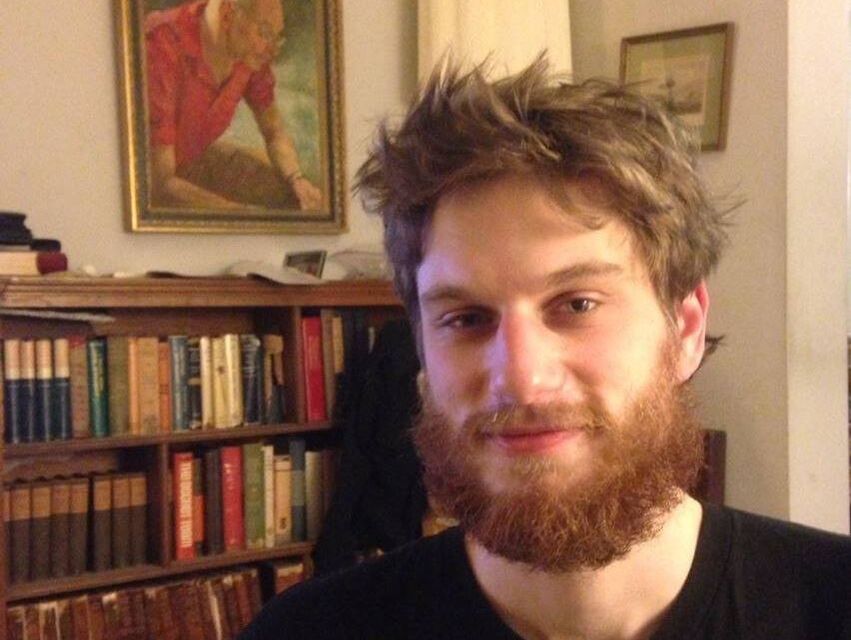 The practices of Jazz education are profoundly wrong. I speak from expensive experience. Firsthand, I swallowed the tacitly understood lie that grounds all Jazz education: Jazz is the center of the musical universe. According to the lie, all contemporary genres with head bowed may submit to our divine patronage, yet none are worthy of our serious study; at best, they are worthy of theft which does not even understand what it steals. There is no understanding because The Lie teaches that other genres are elevated when let into the throne room of Jazz--the Great American Art. In fact the opposite is often true: they are weakened by fusion with a music that has not survived the scrutiny of the public eye for many decades. They are cheapened and broken by the arrogance of Jazz. Our “Standards” are American Popular (Popular, Popular, Popular) Songs from the 30-50’s. Our musical standards only exist in relation to the practices of Jazz, a music that has lost virtually its entire audience. One would think allegiance to this music requires Herculean rationalization, but the process starts early, so by the time we are pumping out albums into a non-existent market at our own lavish expense we--while grimly bitching about the sacrifices of a life in Jazz, and, worse, in New York--continue to play this non-functional music with an evaporating puddle of an audience.
The paradox and absurdity of Jazz education is that it calcifies a music that owed its very existence to contemporary, popular musical languages. Apart from all rhetoric about the value of Jazz in American history, the relevance of Jazz to a popular audience was predicated on one foot being sincerely planted in the field of popular sounds; once that foot was in the door, the highest levels of craft and artistry could be seamlessly smuggled in and therein lay one of the most incredible things about Jazz: there was no compromise between High and Low. It was exciting and smart and malleable and American. The stylistic signposts we inherited--the sound of which say “Jazz” to many people--are mostly past languages of popular music. The songs, the rhythms, and the harmonies used by Great Jazz Musicians were heavily based on purely popular sounds. Ellington’s writing would not be propelled by swing if swing was not a contemporary style, but because it swung he could write anything…he could unleash his craft on an engaged (and often dancing) public. And when asked about “Jazz”, Ellington’s response was clear: “I don’t play Jazz. I play American music”. And when asked about Jazz, Charlie Parker and Miles Davis talked about Stravinsky and Bartok, about theory and technique, about Blues…they didn’t lock themselves in a word. Birth of the Cool, a canonic jazz album, was, to paraphrase the Downbeat review: “very interesting, but not Jazz”. When Ornette Coleman and Cecil Taylor and John Coltrane and Eric Dolphy pushed Jazz further into the esoteric, it was still very much culturally hot both in Europe and America. One foot was still in popular music. New sub-genres opened in Jazz. What was Jazz? The cross of Jazz was dutifully carried into the 70’s, 80’s, 90’s…each decade carried a further alienation, a further lurch into irrelevance. In fact, one can trace it exactly: as the assimilation of popular music became more and more hamfisted or absent, so the music declined in relevance. Being irrelevant to popular culture does not mean that the music is bad. Far from it. However, I am arguing that--if we are to truly reckon with what defines Jazz--it is essential to factor in two things: a) its free and competent usage of popular music languages, and b) its function culturally. I believe Jazz at its core is a music that must continually move. Cultural relevance generates heat and heat generates movement. It is not a style; it is a process. So that’s my story. I gave a lot of my life to a lie. It’s a lie that made me a broadly competent musician, a good one, even. It’s a lie that has provided so many of the most meaningful things in my life. It’s the music that I love, but the lie that I hate. I’m done with the lie, but I’m just beginning with the music. When one dies, the other can live. The mindset of my music is Jazz, but the music itself is not Jazz because I don’t think the Jazz of yesterday wants anything to do with the Jazz of today. The jazz of yesterday wouldn’t call itself Jazz. It’s a paradox, by saying I am playing Jazz, I therefore am not. If you love something set it free. Music has always fascinated me since my childhood. I loved to hang out with my friends in school who used to jam. Even though I couldn't play any instrument back then, I would just watch them play, guitar in particular. I used to observe their fingers, how they played the chords. One day I went to my cousin's house and just tried out those finger positions on the guitar fret. Suddenly on my first try, I got a pretty decent chord sound (for the first try) and gradually I could at some point change some basic chords and sing songs.
However, I never thought that I would be doing music in my career. One concert changed my life. I happened to be in the audience at a jazz concert (without knowing that it was jazz) in Hamburg. I was just visiting a friend and I got invited to that concert. I was just so very touched by the performance that I decided to take proper music lessons. That was the first time in my life that I saw someone playing sax live, in front of me. Back in Kathmandu, I got to know about this music school called Kathmandu Jazz Conservatory. I went there to take some jazz guitar lessons. Saxophone was not even in my mind till then, even though I loved the instrument. I used to play guitar in beginner's jazz combo. The more I started to learn and listen to jazz the more I got attracted to the sound of saxophone. Suddenly, I decided to buy a cheap Chinese alto sax and try it on my own. Luckily, I got to take some private lessons with my first saxophone teacher Mariano, also one of the founders of Kathmandu Jazz Conservatory. In no time I started to get gigs in KTM, since there was hardly any Nepali musicians playing sax on the live jazz scene. I used to get some private lessons here and there with some visiting artists in KTM. My musical journey has all been a coincidence, but what a beautiful coincidence. این داستان به زبان انگلیسی نوشته شده است. از فارسی ترجمه نشده است.
I was born in Kabul Afghanistan in 1999. Born into a family of eight. My family had to leave the country two months after my birth in Kabul, the Taliban had come into power. My father was a military man and my mother a teacher, this made it very dangerous for my family. We left the country to Pakistan, and then we went to Iran. I returned to Afghanistan at the age of eight and wanted to study in one of the schools. I was very enthusiastic about music, thus I went to the music school. I was so excited when I came to the music school. Unfortunately there were no instruments so I had to start on the piano. Four years later the school was revived, new musical instruments were brought to the school. Even their names were not familiar to us. One day, I was walking through the corridor, suddenly I heard this instrument that totally captivated me. I came closer and saw a professor had arrived from abroad to teach music. I went to her and asked if I could play this instrument too, she said yes. This is how I started oboe. After playing oboe, my life changed completely. I recently also graduated from Kabul University with a degree in music. After my graduation from music school, the school offered me a position as a junior faculty member. I still work at the school. Music has become my life and I cannot imagine doing anything else for the rest of my life. La historia que voy a contar tiene que ver con la primera banda musical en la que toqué a los 12 años. Fue durante mi escuela primaria. Yo era el único en mi curso que estudiaba música y cantaba. En ese entonces a mi grupo de amigos y a mi nos gustaba una banda de rock argentino que se llama "La Renga" y yo había empezado a sacar unos temas en la guitarra. Un amigo que vio que tocaba y cantaba los temas me dijo que por qué no armábamos una banda para poder tocar los temas juntos. Le respondí que me encantaba la idea y entonces comenzamos a juntarnos.
"La revelión" fue el nombre que le pusimos a la banda. Pensábamos que eramos rebeldes escribiendo mal la palabra rebelión. En ese momento nos pareció divertido cambiar la "b" por una "v"... a fin de cuentas, teníamos 12 años. Mi amigo Mauro empezó a estudiar batería, otro compañero Pablo, la guitarra y Santiago el bajo. Nos juntamos todos los sábados a ensayar a lo largo de un año. Un día también fuimos a la sala de ensayo donde ensayaba "La renga" a conocerlos. Nos sacamos fotos con ellos y nos autografiaron remeras. También fuimos acompañados por nuestros padres a verlos tocar en vivo. Fue un año a puro rock. Al final del año, en la fiesta de egresados de la primaria, hicimos un recital en el patio del colegio para todos los estudiantes. Ese fue mi primer concierto en vivo, y el de todos. Con la plata de las entradas, recaudamos fondos para nuestro viaje de egresados. Recuerdo los nervios, la excitación y la música de ese show como si lo hubiera hecho ayer. Elegí contar este momento porque tiene varias cosas que me resultan interesantes rescatar. La primera es la amistad. Creo que lo que logramos fue en gran parte gracias a eso y me llena mucho saber que fue así. Lo segundo, la espontaneidad y el trabajo en equipo para lograr un objetivo. Y finalmente saber reconocer el público para el que queríamos tocar y recibir el apoyo del colegio, de las maestras y de nuestros compañeros. Este fue uno de los mejores recuerdos que tengo de la primaria y uno de los mejores shows en vivo que hice. One week near the end of my senior year of high school, I received an email from the director of the Wellington, our local assisted living facility for senior citizens, that Glen had recently passed away and left me something that I needed to pick up at the front desk. I did not know Glen particularly well, but I did remember seeing her smiling face every week for the past year alongside the other devoted 70 to 100-year-old music students. I had known many of them for many more years from performing quartets or solos with my high school’s music club for the residents, but it was not until my senior year that I had the opportunity to teach a Music Appreciation Class to those in the audience who were interested in not just listening to the performances but learning about what they were hearing. I would teach them notation for rhythms and they would clap them out to classics such as Sinatra’s “My Way”, and we had some very enthusiastic vocalists who loved to sing along. These jam sessions were interspersed with classical music history lessons in which we would listen to a piece and then play games to see who could guess the composer and era in which it was written. Sometimes I would play a recording of a piece and lead a discussion in which everyone offered up their ideas about patterns that they noticed in the music and brainstormed stories and memories that the piece brought to mind.
Recently, I got the chance to combine music performance, history, and teaching in a similar way with my Tufts quartet through the Boston Philharmonic Orchestra Mosaic concert series. We played the Debussy string quartet at a branch of the Boston Public Library for a small audience, but we did not simply sit down and start the piece. Rather, with the score in hand, we explained the different role that each instrument plays in a string quartet, introduced the history of Debussy, demonstrated how different themes of the piece interact and re-occur throughout, and pointed out textural tactics that Debussy used to create various aural colors. I felt more connected to the audience than I ever had before and I could tell that the engagement was absolutely reciprocated, likely not only because they now knew what to listen for but also because they got to witness how we all think and interact as a group before hearing us play. Seeing the audience’s faces light up and ask questions reminded me of how inspired I used to feel after each session of the Music Appreciation Class. Teaching music has always been one of my most engaging and rewarding pursuits, but never has its effect been manifested as directly as the day that I walked into the Wellington after receiving that email, curious as to what Glen could have left. There at the front desk was a beautiful painting of a violin/viola embroidered in an antique golden frame, willed to me. Every time I look at it, I am reminded of the invaluable fulfillment I get from teaching music to students young or old, and especially spreading classical music to audiences who may have not been exposed to it before. About 5 years ago I was just starting my teaching career and I was teaching at a place that used to be a kindergarten in the morning and a musical institution after school hours.
At the time the situation in Damascus, the capital of Syria, wasn’t safe and things weren’t good, but people never stopped going to school or taking guitar lessons. So as usual, I was going to my place of work right after school hours and I arrived a bit earlier than usual. The kids from the kindergarten were still there, so their teacher asked me if I could do something to cheer the kids up since they hadn’t been having the best days there. I suggested I’d play them a concert, so we sat them down on the stairs of their school and I sat on the floor and I started playing the songs that they memorized in their class while they sang and danced with me. That day, a little kid who was sad before I started playing music started dancing with me as soon as I played, and his eyes sparkled with joy and happiness. That’s when I decided that I’ll spend whatever time I have educating and sending my musical message across the world, because if I am able to make even one sad child happy, I’d ask for nothing more. In 2015, a colleague in Boston invited me to Ramallah, Palestine to spend two weeks working at the Al Kalmandjati School of Music. This organization, I was told, was founded in 2002 by a Palestinian violist named Ramzi. Without knowing much about Ramzi or the school of music, I set off to work with the flute players, pianists, and singers as a part of their annual summer music camp. The week before the trip, however, I got an idea to also work with the students on a collaborative project composing music together.
So on a hot August morning, our international teaching team arrived at the Tel Aviv airport and loaded into a van to start the trek across the dusty, rocky hills toward Ramallah. As soon as we stepped out of the van, we were greeted by dozens of young, smiling faces running to hug the teachers they recognized from summers past. Just before the workshop began, I could see in most of the teachers’ eyes that they were incredulous that we would able to create a piece of music in only 4 days with a group of students who had such a range of ages and backgrounds — some knew how to read music, others didn’t; only half of the group spoke English and I had only learned a few Arabic words. When the composition ensemble was finally all assembled, I looked out at a group of students who seemed to be as doubtful as their teachers as to their ability to compose. That first day, I focused on doing fun and silly improvisational activities to show that there were no mistakes in composition, only discovery. Slowly, over the next few days the students opened up to me and began to trust their musical instincts. Then, on the third day we were working together on a part of the music where we had gotten stuck as a group the day before. In this part of the piece, we were using a line of poetry that described peaceful Palestinian villages. But we all agreed that the music seemed unfinished. I asked the group what they thought might come next, and one girl who had been quiet the past few days raised her hand. With everyone’s eyes on her, she softly spoke: “I think we should turn to violent sounds because nothing here stays peaceful for long.” Her words carried much weight and the other students nodded. So we began exploring how, with sounds, we could depict the violence that they’ve experienced in their community. On the last day, it finally felt like we were a cohesive group of composers there together. The group decided to end our piece with a song, so we went into composing lyrics. The kids chose as their subject for the song the Al Kamandjati School of music. When it came time to perform, I had tears in their eyes hearing them sing the words they wrote, “Its life, it’s music” and “this is my second home.” I was born in 1995 and raised in Nsambya, in the Kitooro slums of Kampala, Uganda. Born in a family of four, I lost my dad at the age of three and after a big family separation, remained with my Mum.
While on the streets of the Katwe slum, collecting scrap metal, I came across music. Inspired by a big marching band called M-Lisada, I requested to join the band at the age of four and they let me in, starting as a drum major in the band. It is at this moment when I fell in love with music. After years of being drum major, I moved on to the trombone, the best instrument on earth. It’s with M-Lisada that I met Brass For Africa and from that moment on, my life changed. I learned that music is not just a source of money and fun, but it comes with loads of life skills and it can change the world. I have now been involved in Brass For Africa programs for eight years, moving from just a mere trombone player to an apprentice, junior teacher, standard teacher, senior teacher and now the Assistant Director of Music Education. Because I loved music, Brass For Africa has given me the chance to meet some of the greatest musicians like Alison Balsom, Guy Baker, and Joshua Bell. Performing at Joshua Bell’s house in New York and at the Royal Albert Hall as a solo performer was a dream come true. Music has changed my life and given me a chance to inspire kids in Africa, and for the last eight years I have taught music and life skills to about 480 students. I am now 25 years of age, in my third year of law school, a trombone player, a junior orchestra conductor and the Assistant Director of Music Education at Brass For Africa, while participating in the Fellowship Program of Teach To Learn. I must have been around 10 or so, when at my maternal grandfather’s place in one of the rooms, I was humming a melody which caught my aunt’s attention. In a way, it was she who discovered that music was in me and that I was endowed with a faculty to sing well. And that is how it all started perhaps…
I remember singing and listening to the old songs of the Golden Era (of the time of my parents’ and grandparents’ generation) and it was only with time that I realized music was a part of my family too. It wouldn’t be incorrect to say that I’ve received it in inheritance from my father’s side of the family. Occasionally, when I used to visit my extended family in my native state (Rajasthan), there used to be sessions where the elders, my cousins and I used to gather around and sing songs. Years went by and it was only after I entered middle school that I started taking formal lessons and training in Hindustani Classical Vocal music. All this while, (and even now, to some extent) my music remained confined to me and my family, for I never got into the performance aspect of it, and hence (needless to say), refrained from going up on stage and performing. I was (and have been) pursuing music as a side passion along with my academics. Music Basti as an organization had been known to me for quite some time during my undergrad years too, but it was only when I started pursuing my Master’s that I applied for the role of a Teaching Artist there. And what a wonderful journey it has been — full of inspiration and learning. My experience at Music Basti gradually started to incline me towards the domain of arts and education, in general. I realized the potential that music (and the arts, in general) holds for bringing about positive social change. I have been with the organization for over two years now, and I have had no regrets or qualms whatsoever. This is actually the thing that I would love to do and continue further in life too, if possible. To me, the combination of music and education seems to be just about the right match. One fine day that I had my usual class at one of the schools where I teach, I get visited by the founders of this wonderful initiative (Bob and Derek) for an observation session. Ideas and thoughts get exchanged, discussions ensue and I ultimately end up being a proud fellow of the first cohort of the TTL Fellowship program. I wish to be able to make use of this opportunity and use music to bring about larger, meaningful changes in society. |
